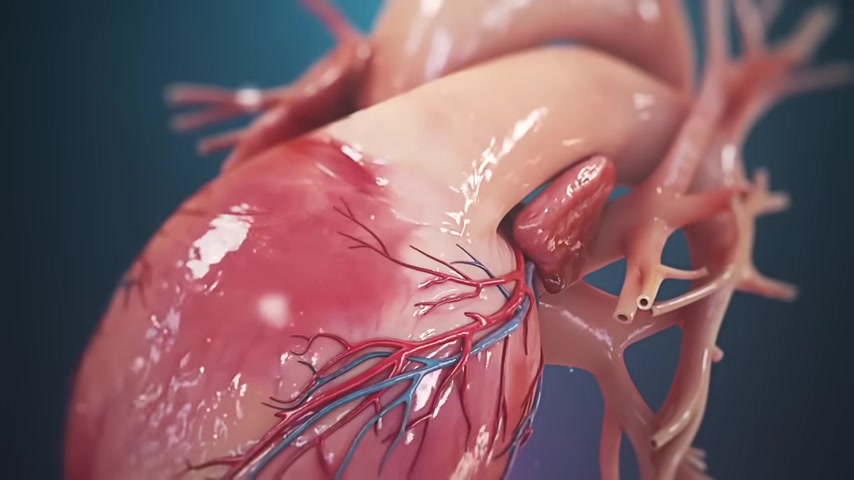
https://www.youtube.com/watch?v=0WNNfRlotUg
The Low Magnesium Epidemic - Dr. Berg Explains Signs, Symptoms, Causes, and Treatment

Over 40% of the population is deficient in magnesium .
You're about to find out that a magnesium deficiency can create huge problems for your health .
The influence of magnesium in your heart , if you're deficient , you can end up with high blood pressure .
Magnesium has everything to do with the relaxation of arteries , muscles , smooth muscles .
So if you're deficient in magnesium , you're gonna have a little more calcium , and your arteries are gonna get rigid , and you'll have a tendency to have high blood pressure .
Another common problem with the heart is arrhythmias .
Okay ?
The pacemaker of your heart is neurological , but it connects to the muscle .
And you actually have 4 pacemakers , which are little cells that have this rhythmic , beat into the heart , but that pacemaker is mostly dependent on the electrolyte magnesium .

And because magnesium is involved with nerve and muscle , you can end up with tetany or twitching or any type of abnormal relaxation or contraction of a muscle .
And this is why the number one cause of a leg cramp or a foot cramp is a magnesium deficiency .
Magnesium doesn't just have to do with muscles , though , or nerves .
It's involved in over 350 different , enzyme or biochemical pathways , some involving the production of energy .
That's why the number one sign of a magnesium deficiency is fatigue .
Because if you don't have magnesium , you can't make energy .
You also have magnesium influence over insulin .
For example , if you are deficient , you are way more at risk of getting diabetes and developing insulin resistance .
And so if you have insulin resistance or you're prediabetic or a diabetic , you must make sure that you have enough magnesium to fix that .
Even your mood is influenced by magnesium .

People that were depressed are nearly always deficient in magnesium .
Another really good biomarker or indication that you're low in magnesium is c reactive protein .
It's an inflammatory biomarker , and without magnesium , it's very , very difficult to get rid of inflammation .
And so there's a big , magnesium immune system relationship .
The RDAs or the required amounts of , magnesium range anywhere between 300 to about , you know , 750 milligrams .
If a person has some type of degenerative chronic disorder or a heart problem or diabetes or high blood pressure , the need for magnesium goes way up .
And so if you're just operating off of these smaller amounts , you're gonna have a hard time fixing these problems .
I think there's 2 ways that we are deficient in magnesium .
Number 1 , we lose a lot of magnesium when we process foods , when we refine foods .


And most people live on refined foods , especially children who don't , consume enough magnesium .
So even though we're overfed , we're definitely undernourished .
The other big challenge with magnesium deficiencies is is identifying , magnesium deficiency or testing for a magnesium deficiency .
If you're using the blood to measure magnesium , you will never find a deficiency .
I'm talking about 99% of all your magnesium is actually located inside the cell , not in the blood .
Out of all the total magnesium you have , only 1% of it is in the blood .
So you really have to understand the input dietarily of magnesium as well as things that can deplete magnesium .
And if we take a look at chlorophyll , that's the green stuff in plants .
And at the heart of chlorophyll , you have magnesium .
The chemistry of chlorophyll is very similar to your own blood , with one difference .
With blood , you have iron .

With chlorophyll , you have magnesium .
And with an average person , especially in America , only consuming 1 cup of vegetables per day , you can see the problem .
And that's for adults .
I don't know many children that consume any vegetables .
So we have this input , this dietary input that we need to focus on , but also other things can deplete you of magnesium .
The big one is sugar , and the second one is refined carbohydrates .
The more sugar , the more refined carbohydrates you eat , the more magnesium you need to metabolize or deal with those , calories .
If you have diarrhea , you lose a lot of magnesium .
If you're on a diuretic , you will lose magnesium .
If you're on an antibiotic , you can lose magnesium .
And when you drink alcohol , you lose magnesium .
And even as we age , we store less magnesium in certain tissues .

There's also a really important connection between your ability to absorb vitamin d and magnesium .
You're also gonna have a hard time absorbing b vitamins without magnesium .
Magnesium is involved in certain transporters in certain things in your body .
So one reason why you might be b deficient or vitamin d deficient is you just don't have enough magnesium in the diet .
Magnesium also is involved in helping you keep your cortisol stress on the low side .
This is why magnesium is important in sleeping .
Okay ?
Because you're deficient in magnesium and you have all these muscle cramps and you're stressed out , you're not gonna get a good night sleep .
Ideally , you wanna get your magnesium from your food .
So that would be consuming a lot of , dark leafy green vegetables .
If you wanted to take a supplement , I'd recommend the following types of magnesium .
These are way more bioavailable than other sources .
Okay ?


And I'm talking about magnesium citrate , or magnesium lactate , or magnesium glycinate , or magnesium aspartate , or even magnesium gluconate .
So I think now you have a greater appreciation for magnesium .
But the other mineral that is equally important is potassium .
And if you haven't seen this video , I put it up right here .
Check it out .
Are you looking for a way to reach a wider audience and get more views on your videos?
Our innovative video to text transcribing service can help you do just that.
We provide accurate transcriptions of your videos along with visual content that will help you attract new viewers and keep them engaged. Plus, our data analytics and ad campaign tools can help you monetize your content and maximize your revenue.
Let's partner up and take your video content to the next level!
Contact us today to learn more.